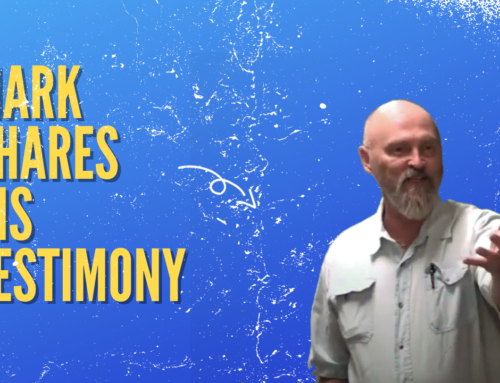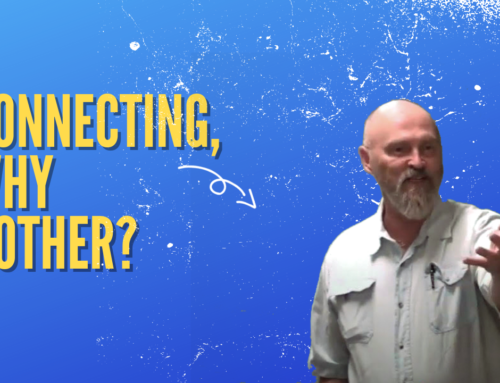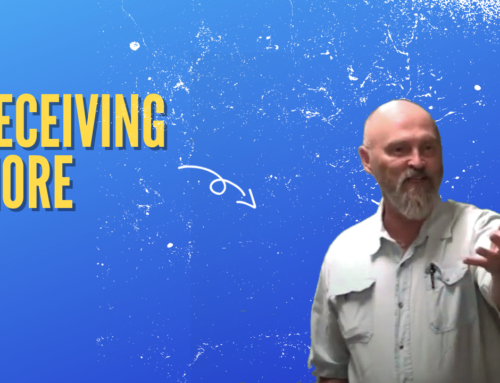The book of Philippians is a letter to a church. To understand the letter we have to understand the church. Churches are just like people; they have a genetic code which they received from their parents. They are formed as well, through the experience of their early formative years. The church of Philippi is the spiritual child of Paul and so understanding Paul’s values and experience is essential to understanding his spiritual child.
Paul’s call to ministry comes immediately after his radical conversion. Acts 9:15-16, But the Lord said to Ananias, “Go! This man is my chosen instrument to proclaim my name to the Gentiles and their kings and to the people of Israel. I will show him how much he must suffer for my name.” It is essential to note that in Paul’s call to do great things for God there is contained a call to suffer. The kingdom of God comes through the circumstances of people’s lives both good and bad. This is true for all those God uses throughout the Bible.
Here is Paul’s autobiography; 2 Corinthians 11:23-29, “…… I have worked much harder, been in prison more frequently, been flogged more severely, and been exposed to death again and again. Five times I received from the Jews the forty lashes minus one. Three times I was beaten with rods, once I was pelted with stones, three times I was shipwrecked, I spent a night and a day in the open sea, I have been constantly on the move. I have been in danger from rivers, in danger from bandits, in danger from my fellow Jews, in danger from Gentiles; in danger in the city, in danger in the country, in danger at sea; and in danger from false believers. I have labored and toiled and have often gone without sleep; I have known hunger and thirst and have often gone without food; I have been cold and naked. Besides everything else, I face daily the pressure of my concern for all the churches. Who is weak, and I do not feel weak? Who is led into sin, and I do not inwardly burn?”
At the time Paul wrote the letter to the Philippian church he was in prison either in Rome or Ephesus. That imprisonment lasted approximately two years. During that time he was waiting to hear whether he would live or die. This is important to understand because the advice Paul gives to the Philippian church [and to us], regarding the attitude we are to have in the face of suffering, would lack credibility if it were not written by someone who has genuinely suffered and was, in fact, suffering while giving the advice. Only one who has suffered has the right to give advice about how to endure suffering. The Philippian church was born in both suffering and power. A combination we don’t really understand. Here is the story: Acts 16:7-30,
Vs. 7 – Paul had plans to go to Asia but these plans were thwarted by the H.S. – that is to say, circumstances did not go according to Paul’s plans based on his human reasoning. The word “thwarted” means “to frustrate” which is exactly how we feel when our plans don’t work out. We like to call that “suffering”.
Vs. 9 – Paul has a dream of a man in Macedonia begging him to come and he reaches the conclusion that this dream is from the H.S. so they head toward Philippi. This is the first supernatural event leading to the birth of the church.
Vs. 12-14 – Paul arrives in Philippi and begins preaching outdoors. A business woman and her household become Christians.
Vs. 16-19 – Paul casts a fortune telling spirit out of a slave girl and her owners bring charges against Paul and his team. Vs. 22 – Paul and his team are severely flogged. Flogging results in large open gashes on the back from top to bottom. They are inexpressibly painful. I have not included these details to be sensational but because what happens next is almost inconceivable given what they have just been through – they were SEVERELY flogged.
Vs. 22 – They are thrown into prison and chained to stocks, which are a feature unique to the rooms used for torture. They are awaiting their fate in a torture chamber.
Vs. 25 – “About midnight Paul and Silas were praying and singing hymns to God, and the other prisoners were listening to them. Suddenly there was such a violent earthquake that the foundations of the prison were shaken. At once all the prison doors flew open, and everyone’s chains came loose.” Here is the first hint that Paul knows something we do not know. He is in indescribable pain, in a torture chamber, not knowing if he will live or die and he is WORSHIPPING! The question we must answer is this, “How is this humanly possible and what does he know that we don’t?” The book of Philippians answers this question.
Vs. 26 – While they are worshiping [hint, hint] an earthquake happens and their shackles fall off and the door to their cell SPONTANEOUSLY opens! The only logical human conclusion to reach is that God likes worship and has responded by setting them free. “Thank you Jesus, now let’s get out of here!!” But this is not what they do! They remain in their cells! Where does that kind of trust and selfless risk come from? The book of Philippians answers this question.
Vs. 27 – The jailer wakes up and sees all the cell doors open and reaches the logical conclusion that his prisoners are gone and he prepares to kill himself.
Vs 28 – 30 – Paul says, “stop, we are all here”. The jailer is so thankful that he listens to the gospel and he and his whole house become Christians. This is the birth of the Philippian church.
The Philippian church is born of supernatural power and suffering and these two go together naturally for Paul. Perhaps more confusing is this, there are three things evident in Paul’s life that we rarely put together; supernatural power, suffering and JOY. How does that work? The book of Philippians answers that question for us. The answer applies to our lives here and now!
Listen to sermon – Intro to Philippians: Born in Power, Born in Pain, Living in Joy!








Leave A Comment